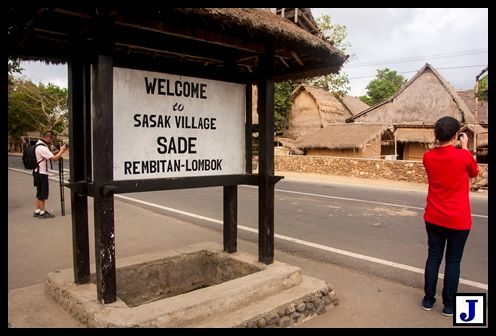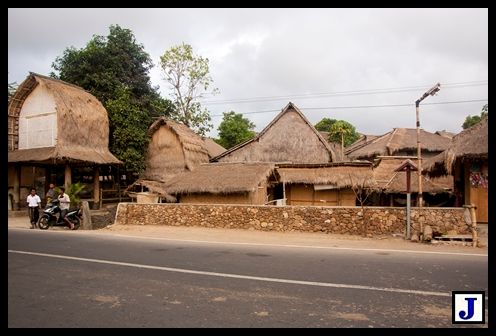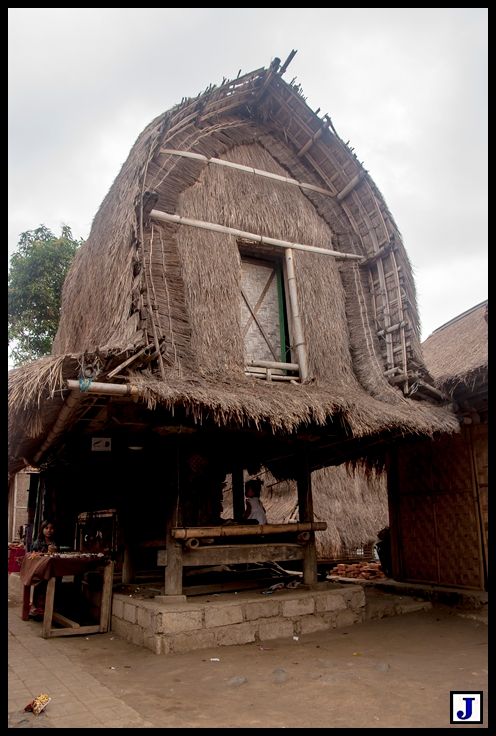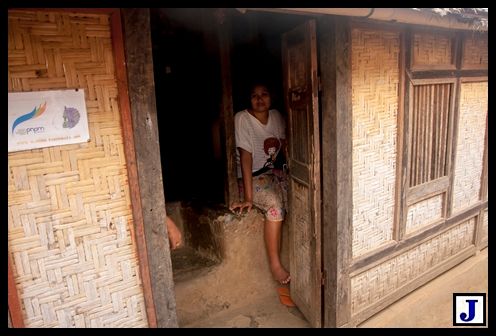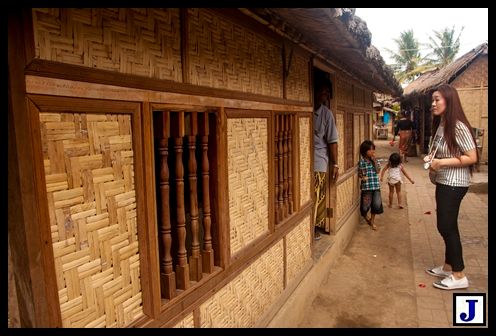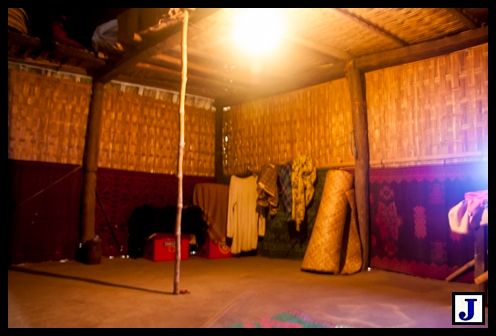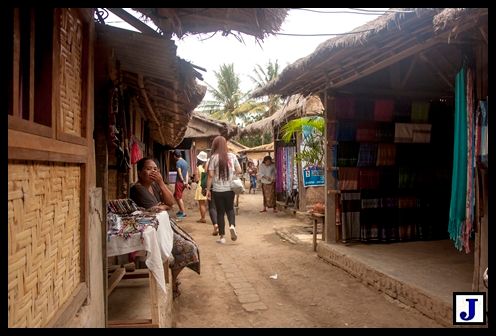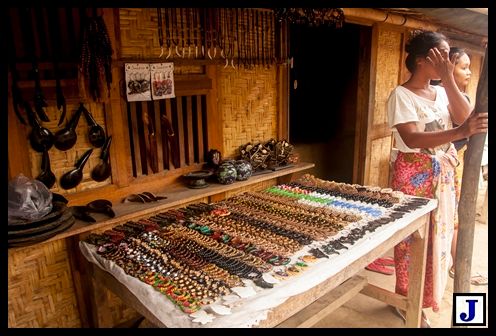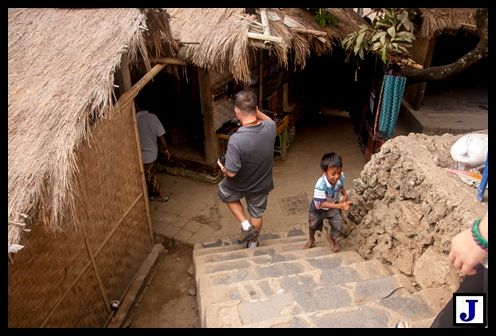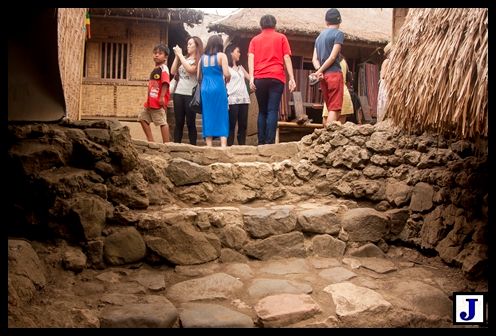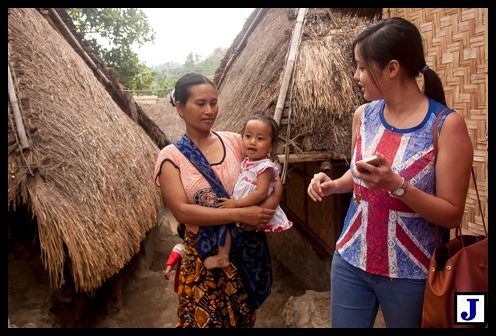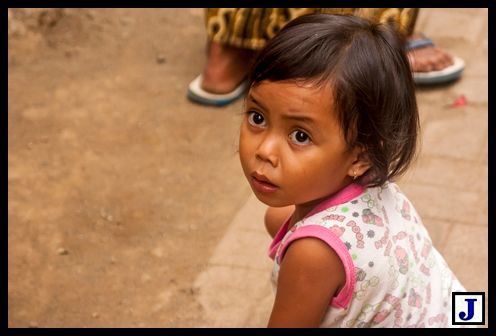Sade Village, the native Sasak's village at Rembitan area, Lombok - Indonesia
"The Sasak people live mainly on the island of Lombok, Indonesia, numbering around 2.6 million (85% of Lombok's population). They are related to the Balinese in language and race, although the Sasak are predominantly Muslim while the Balinese are Hindu." Source from here.
The entrance of Sasak Village at Sade
The most ancient Sasak village in Lombok is the village of Bayan, situated near the foot of Mount Rinjani, which is the stronghold of the Wektu Telu. Wektu Telu is the distinct feature of religion, a syncretic belief of Islam intertwined with elements of Hinduism, Buddhism, and ancient traditional beliefs, unique to Lombok island.
"A small minority of Sasaks called the Bodha (estimated population: 8,000) are mainly found in the village of Bentek and on the slopes of Gunung Rinjani. They are totally untouched by Islamic influence and worship animistic gods, incorporating some Hindu and Buddhist influences in their rituals and religious vocabulary. This group of Sasak, due in part to the name of their tribe, are recognized as Buddhists by the Indonesian government." Source from here.
Nonetheless, despite differences in religious beliefs, the Sasak live in harmony among themselves.
The Sasak's Village at Sade
There were houses, rice barn (lumbung) and ceremonial hall (beruga) in the village. All the roof are covered by elephant plant (alang-alang), providing coolness in hot weather and warmth during night. The wall are mostly made by bamboo and the interesting part is the floor and some half wall is made by the mixture of clay and buffalo feces.Well, it was not stink at all. Beside that, it also works as a mosquito repellent.
The rice barn (lumbung)
The house in Sade village
The Sasak's house basically divided into 3 sessions : sleeping area, living room and kitchen. Men are restricted at the first session to protect the women in the house, because if the man want to marry the woman, he has to 'kidnap' the women (but with the permission). The tradition has been continue until today...
The house in Sade village
The living room...
Men in the village mostly are farmer, while the women stay at home weaving, making handicrafts and souvenirs for the visitors and tourists.
The handicraft, souvenirs for visitors...
The modernization seems powerless to change the village, and they still maintained the authenticity which also supported by the local community and their original language - The Sasak language.
The entrance of their house is designed not higher than adult, so every guest come in have to lower down their head while passing through, it's a way to respect the host.
We enjoyed the tour very much and learn a lot from the culture of indigenous Sasak villagers, they were friendly too...
After visiting the Sade village, it was almost dinner time...and we heading to Senggiri beach for seafood dinner...
Related post for Lombok island trip :-
* Airasia media FAM trip to Lombok Island - Indonesia on July 2014
Location map of Sade Village at Rembitan area of Lombok island, Indonesia.
